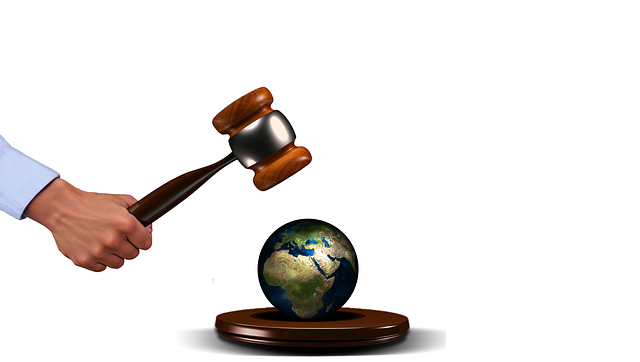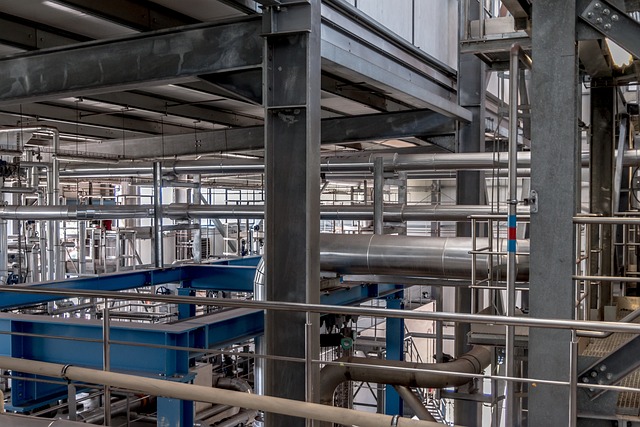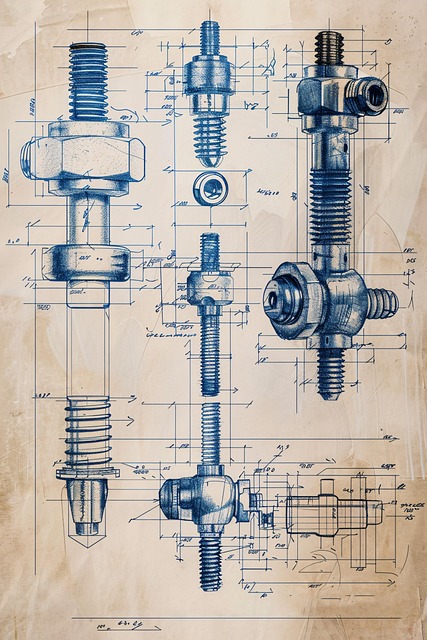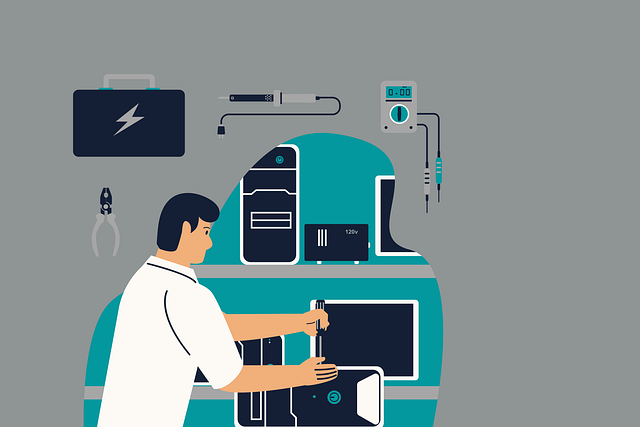Localize UK Technical Standards: Translation Services for Seamless Regulation Compliance
Understanding and adhering to UK technical standards is critical for businesses aiming for global recognition or expansion into the UK market. Professional translation services play a pivotal role in localizing these guidelines and ensuring complianc…….

Understanding and adhering to UK technical standards is critical for businesses aiming for global recognition or expansion into the UK market. Professional translation services play a pivotal role in localizing these guidelines and ensuring compliance across diverse industries like manufacturing, healthcare, and tech. These services go beyond basic translation, incorporating industry knowledge and linguistic expertise to accurately convey technical documents' meaning while navigating complex regulatory landscapes. By leveraging advanced tools and staying updated with regulatory changes, translation agencies enable seamless market access and effective communication for international businesses operating within the UK jurisdiction. AI-driven solutions further revolutionize this process, promising increased efficiency, accuracy, and accessibility in the future of technical documentation.
“Navigating the complex landscape of technical standardization is a crucial aspect of complying with UK regulations. This comprehensive guide delves into the essential process of localizing technical standards, ensuring they resonate with the unique demands of the UK market. From understanding global counterparts to overcoming language barriers, we explore strategies including advanced translation services that are transforming how international standards are adapted for local use. Discover best practices, real-world case studies, and insights on AI’s emerging role in streamlining UK technical documentation.”
- Understanding UK Technical Standards and Their Global Counterparts
- The Significance of Localized Technical Documentation
- Navigating Language Barriers in Standardization
- Translation Services: A Game-Changer for UK Technical Guidelines
- Ensuring Precision and Accuracy in Technical Translations
- Best Practices for Adapting International Standards to the UK Market
- Case Studies: Successful Localizations in Action
- The Role of Localization Agencies in Technical Standardization
- Future Trends: AI and Machine Translation in UK Technical Documentation
Understanding UK Technical Standards and Their Global Counterparts

Understanding UK technical standards and their global counterparts is crucial when aiming to localize guidelines for compliance with UK regulations. The UK has its own set of technical requirements and specifications that are often unique, reflecting the country’s specific needs and legislative framework. These standards cover various sectors, from manufacturing and construction to digital technologies and healthcare.
When it comes to international business or seeking global recognition, aligning these UK standards with their international counterparts becomes essential. Translation services for UK Technical Guidelines and Standards play a vital role in this process. Professional translators help bridge the gap by accurately translating technical documents, ensuring that the meaning and intent of the original standards are preserved. This is particularly important as businesses seek to expand into new markets, ensuring they meet local regulations while maintaining compliance with UK requirements.
The Significance of Localized Technical Documentation

Localized technical documentation plays a pivotal role in ensuring compliance with UK regulations, especially for international businesses operating within this jurisdiction. With a vast array of industries and specialized sectors, the UK market demands precise and tailored guidance to meet its unique requirements. Translation services for UK Technical Guidelines and Standards are, therefore, an indispensable asset for companies aiming to navigate this complex landscape successfully.
Accurate translation ensures that technical information is conveyed effectively across different languages, ensuring compliance with local standards. It helps businesses avoid misunderstandings, legal issues, and potential penalties by providing clear instructions and specifications in the native language of their target audience or employees. This is particularly crucial for industries such as healthcare, engineering, and manufacturing, where technical precision and regulatory adherence are paramount.
Navigating Language Barriers in Standardization

Navigating Language barriers in standardization is a critical aspect of ensuring that technical guidelines and standards are accessible and effective across the UK. When localizing documents for diverse linguistic regions, precision and cultural sensitivity are paramount. Translation services play a pivotal role in this process, offering specialized solutions tailored to the unique requirements of UK technical documentation.
These services go beyond mere word-for-word translation, delving into semantic and contextual nuances to convey the intended meaning accurately. Professionals adept in both language and technical fields ensure that terms are not only translated but also aligned with local terminology and regulatory frameworks. By leveraging advanced tools and industry expertise, translation services for UK Technical Guidelines and Standards facilitate seamless communication, bridging gaps and ensuring compliance across diverse linguistic landscapes.
Translation Services: A Game-Changer for UK Technical Guidelines

In today’s globalized market, ensuring technical guidelines and standards align with local regulations is paramount for businesses operating in the UK. Translation services play a pivotal role here, acting as a game-changer for organizations seeking to localize their technical documents. Accurate translation goes beyond mere word-for-word substitution; it demands an understanding of both the source and target languages’ cultural nuances, legal terminology, and industry-specific jargon.
Professional translators equipped with this expertise can bridge the gap between international standards and UK regulations, ensuring compliance and avoiding potential pitfalls. By leveraging translation services for UK technical guidelines and standards, businesses can streamline their localization efforts, maintain consistency across markets, and ultimately facilitate smoother operations within the local landscape.
Ensuring Precision and Accuracy in Technical Translations

When localizing technical standards for UK regulations, precision and accuracy are paramount. Translation services for UK Technical Guidelines and Standards must go beyond simple word-for-word rendering to grasp the nuanced intent behind each requirement. Skilled translators with expertise in both language and domain knowledge are essential to ensure that technical terms are accurately translated and contextually appropriate. They understand the importance of preserving regulatory integrity while adapting content to meet local linguistic nuances.
To achieve this, translation processes often involve extensive research, consultation with industry experts, and rigorous quality assurance checks. Utilizing specialized software tools and glossaries can also enhance consistency and accuracy. Remember that technical translations require a deep understanding not just of language but also of the specific standards and regulations being addressed, ensuring compliance with UK requirements every step of the way.
Best Practices for Adapting International Standards to the UK Market

When adapting international technical standards for the UK market, it’s crucial to employ best practices that ensure accuracy, relevance, and compliance with local regulations. One key step is engaging specialized translation services for UK Technical Guidelines and Standards. These services not only translate documents but also localize them, accounting for cultural nuances and legal terminology unique to the UK.
Additionally, collaborative efforts between industry experts, translators, and regulatory bodies are essential. This multidisciplinary approach guarantees that the adapted standards align with current practices and requirements in the UK. Regular reviews and updates are equally vital to keep pace with evolving technologies and regulatory changes, ensuring the continued effectiveness and relevance of localized technical standards.
Case Studies: Successful Localizations in Action

Successful localization projects for UK technical guidelines and standards offer valuable insights into effective strategies. One notable case involves a global manufacturing company that needed to adapt its product manuals for the British market. The challenge lay in translating complex technical content while adhering to specific UK regulations, such as those related to health and safety. Professional translation services played a pivotal role, ensuring precise communication of critical information.
The process involved not just word-for-word translation but also cultural adaptation. Translators with expertise in the relevant industries carefully reviewed British laws and industry standards. They then rephrased content to align perfectly while maintaining clarity and readability for end-users. This meticulous approach resulted in localized documents that were both compliant and user-friendly, setting a benchmark for similar projects involving UK regulatory requirements.
The Role of Localization Agencies in Technical Standardization

Localization agencies play a pivotal role in ensuring that technical standards and guidelines are adapted and compliant with UK regulations, making them indispensable in the process of standardization. These agencies specialize in translation services for UK Technical Guidelines and Standards, providing expertise beyond simple word-for-word interpretation. They not only translate documents but also localize them, taking into account cultural nuances, regional variations, and legal requirements specific to the UK market.
By leveraging their deep knowledge of both language and local context, localization agencies help bridge the gap between international standards and UK compliance. They employ professional translators who are native speakers or have extensive experience in technical fields, ensuring accuracy and consistency across all translated materials. This specialized service is particularly crucial for industries with stringent regulations, such as healthcare, manufacturing, and technology, where precise communication is vital for safety, quality, and market access.
Future Trends: AI and Machine Translation in UK Technical Documentation

The future of technical documentation in the UK is set to be transformed by Artificial Intelligence (AI) and Machine Translation technologies. As regulatory requirements become increasingly complex, AI-driven solutions offer a promising avenue for streamlining translation services for UK Technical Guidelines and Standards. These innovative tools can significantly enhance efficiency, ensuring that documents are accurately translated while adhering to specific terminology and industry jargon.
By leveraging machine learning algorithms, AI systems can adapt and improve over time, providing consistent and high-quality translations. This is particularly beneficial for specialized technical content, where maintaining precision and consistency across languages is paramount. The integration of AI in translation services not only reduces the turnaround time but also opens up opportunities for more dynamic and accessible technical documentation, catering to a global audience within the UK market.
Localizing technical standards for adherence to UK regulations is essential for ensuring product safety, facilitating trade, and promoting innovation. As demonstrated through case studies, a strategic approach involving specialized translation services can seamlessly bridge the gap between global standards and the UK market. By prioritizing precision, accuracy, and best practices, organizations can navigate language barriers effectively, ensuring their technical guidelines remain current, relevant, and compliant with local regulations. Translation services play a pivotal role in this process, revolutionizing how international standards are adapted for the unique needs of the UK.






